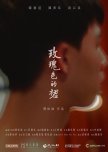Clear and strong message: the fight for LGBT+ rights in Taiwan has not stopped
Inspired by the "skirt week" controversy at Banqiao Municipal High School in Taiwan, where students fought for men's right to wear skirts in the student center, the short film 'Rose Skirt' (玫瑰色的裙), from 2021, tells how while the well-intentioned students carried out the exercise in a playful and boisterous manner, Xiao Yan, the only boy in the class who really has desires to crossdress, remains silent and hides his longing.
From Taiwanese writer, director and producer Angel I-Han Teng, 'Rose Skirt' is a queer coming-of-age short that depicts the ambiguity of growing gender consciousness in teenagers. Yan, the teenage protagonist of the story, faces his desire for feminine expressions while struggling with feelings of guilt and shame. Is it internalized homophobia? Is it homophobia? The truth is that he is afraid to admit his true self to everyone.
Starring Xiang-Dao ChenKey, Yi Rou Kao and Etsen Chen, the film continues the filmography of a filmmaker interested in addressing issues related to identity, gender, feminism and human rights with a subtle sensitivity.
These themes are addressed by the filmmaker since her first work as a screenwriter of 'Bao Bao' (親愛的卵男日記), from 2018, directed by Shie Guang Cheng, or 'The Fragrance of the First Flower', winner of the Gold Award in the GagaOOLala Pitching Sessions, and 'A Balloon's Landing'(我在這裡等你), from 2024, among other film pieces.
The short film addresses a conflict already seen before, but from a different angle. When society downplays the issue and affirms that a man, regardless of his sexuality, can wear women's clothing, they drown out the voices of those who really want to cross-dress.
In a subtle way, the filmmaker uses this conflict to weave a deeper and more delicate narrative. But what is striking is that the short film is set in Taiwan, the only territory in Asia where LGBT+ people have achieved some social and human rights achievements, such as the legalization of same-sex marriage.
The filmmaker's message is that, despite what has been achieved, the members of this human group still suffer from misunderstandings and humiliations, which generate fears and insecurities. The objective of the film is clear and forceful: to point out that Taiwanese LGBT+ people must still continue the fight for full recognition of their human rights.
From Taiwanese writer, director and producer Angel I-Han Teng, 'Rose Skirt' is a queer coming-of-age short that depicts the ambiguity of growing gender consciousness in teenagers. Yan, the teenage protagonist of the story, faces his desire for feminine expressions while struggling with feelings of guilt and shame. Is it internalized homophobia? Is it homophobia? The truth is that he is afraid to admit his true self to everyone.
Starring Xiang-Dao ChenKey, Yi Rou Kao and Etsen Chen, the film continues the filmography of a filmmaker interested in addressing issues related to identity, gender, feminism and human rights with a subtle sensitivity.
These themes are addressed by the filmmaker since her first work as a screenwriter of 'Bao Bao' (親愛的卵男日記), from 2018, directed by Shie Guang Cheng, or 'The Fragrance of the First Flower', winner of the Gold Award in the GagaOOLala Pitching Sessions, and 'A Balloon's Landing'(我在這裡等你), from 2024, among other film pieces.
The short film addresses a conflict already seen before, but from a different angle. When society downplays the issue and affirms that a man, regardless of his sexuality, can wear women's clothing, they drown out the voices of those who really want to cross-dress.
In a subtle way, the filmmaker uses this conflict to weave a deeper and more delicate narrative. But what is striking is that the short film is set in Taiwan, the only territory in Asia where LGBT+ people have achieved some social and human rights achievements, such as the legalization of same-sex marriage.
The filmmaker's message is that, despite what has been achieved, the members of this human group still suffer from misunderstandings and humiliations, which generate fears and insecurities. The objective of the film is clear and forceful: to point out that Taiwanese LGBT+ people must still continue the fight for full recognition of their human rights.
Considerați utilă această recenzie?


 1
1 2
2






















